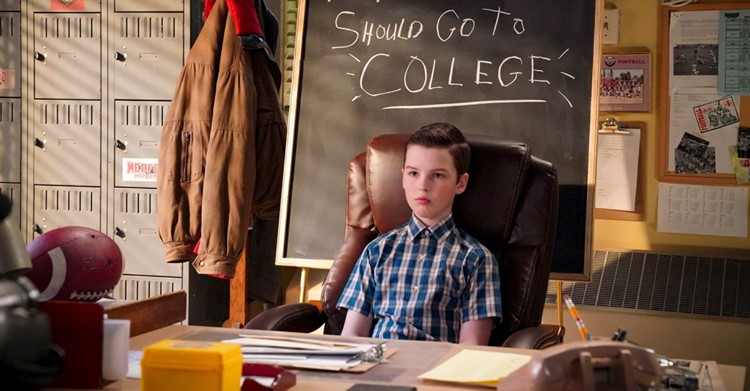
Top Syndie Shows Outdrawing Primetime

Media buying executives say there are no longer any daily broadcast primetime shows, other than the NFL, that can be considered appointment viewing or must-buy for their advertiser clients.
With viewership seriously diluted by the growing oversaturation of programming brought about by the rapid and steady growth of streaming TV services, very little programming stands out among the masses anymore.
“There is no appointment viewing on television anymore,” says one media agency executive, who did not want to speak for attribution. “There is just massive fragmentation and diluted audiences of what people are watching each day.”
However, there still is a crown jewel in linear broadcast TV, and one that advertisers on TV stations can take advantage of: The Big 3 syndicated game shows — Jeopardy, Wheel of Fortune and Family Feud — that primarily air nightly in primetime access.
More than two months into the new TV season, all three of those shows are drawing more viewers nightly than the top broadcast entertainment shows.
Numbers Don’t Lie
Jeopardy, the most-watched non-sports programming on television, is averaging 9.2 million viewers per night, while Wheel of Fortune and Family Feud, tied for second, are drawing 8.4 million viewers per night, according to Nielsen data. The most watched broadcast entertainment show is NCIS on CBS, which is averaging 7.9 million viewers.
Not to be left out is the syndicated court show Judge Judy, which is averaging almost 6.9 million viewers in various daytime timeslots, and that also places it among the Top 10 most-watched daily, non-sports shows on all linear television.

Judge Judy
Making the Judge Judy numbers more interesting is that the show is airing only in repeats as Judy Sheindlen left the show after last season. The final first-run episodes aired in July. Under an agreement, the show will continue to be distributed in repeats for two seasons and, at least right now, Judge Judy repeats are getting more viewers than all but a handle of first-run, new episodes of broadcast primetime shows.
What is also a plus for the studio distribution companies selling ads for the top syndicated shows is that while they are outdrawing the broadcast shows in viewership, their ad rates are still significantly lower than broadcast primetime, so advertisers are flocking to them.
Advertisers On Board
According to iSpot.tv data through mid-November, advertisers had placed $24.5 million on Family Feud for the first nine weeks of the new syndication season, while $20.7 million was placed in Wheel of Fortune.
Family Feud also recorded 4.3 billion TV ad impressions, or ad viewers, while Wheel of Fortune recorded 1.7 billion TV ad impressions. Judge Judy took in $12.3 million advertising dollars and recorded 1.24 billion TV ad impressions.
Jeopardy has taken in $6.2 million in advertising this season and has recorded 451 million ad impressions.
Longevity Is Key

Family Feud
As for why these shows remain so popular, a lot of it has to do with longevity. Family Feud first aired in syndication in 1976 and has had three different syndication runs totaling 39 years. Wheel of Fortune has aired in syndication for 38 years, Jeopardy for 37 and Judge Judy for 25.
“There’s not much you can do to draw viewers in with either first-run syndication or off-network syndicated shows anymore,” says one media agency exec. “So, the studios are hanging on to as many veteran syndication shows as they can rather than spend money developing first-run shows that may not succeed. And they are also putting more money into developing streaming shows, which clients like but which don’t produce the mass audiences that linear syndication does.”
While the Big 3 game shows and Judge Judy are pulling in mass viewership, there are a bunch of other veteran syndicated shows that are also attracting somewhat sizable numbers and drawing in ad dollars.
Dr. Phil, on in syndication for 18 years, is averaging 2.5 million viewers and taking in $11.3 million in ad dollars for the nine weeks ending Nov. 14., according to iSpot.tv. While The Ellen DeGeneres Show, in its final season after 18 years in syndication, is averaging 1.4 million viewers and has taken in $3.4 million in ad dollars. Relative newcomer The Kelly Clarkson Show is averaging 1.3 million viewers and has gotten $4.9 million in ad dollars through mid-November.
No Break-Out Newcomers
However, Nick Cannon’s first-year talk show got off to a slow start and hasn’t picked up much since premiering in late September. The show is averaging about 540,000 viewers.

Young Sheldon
The most successful off-network sitcom to move into syndication this season has been Young Sheldon, produced by Warner Bros. Television. The CBS sitcom, which is averaging 6.8 million viewers in broadcast primetime, is averaging 1.2 million viewers in syndication season-to-date.
You Bet Your Life, a new version of the 1950s Groucho Marx comedy game show hosted by Jay Leno that premiered this season in syndication on the Fox Television Stations, is averaging 1.1 million viewers.
Not Much Fall 2022 Fanfare So Far
As for new programming planned for fall of 2022 syndication, the studios have not been very talkative even as the National Association of Television Programming Executives (NATPE) annual conference approaches in mid-January.
Byron Allen’s Entertainment Studios has confirmed that it will launch its sixth court show in syndication, We the People with Judge Lauren Lake, in fall 2022. Lake starred in a paternity court show produced by MGM Domestic Television for syndication for eight years before it was canceled in 2018.
CBS Media Ventures (formerly CBX Television Distribution), which produces syndicated talk shows Dr. Phil, The Drew Barrymore Show and Rachael Ray, is expected to produce a daytime talk show starring Niecy Nash. However, the studio is not officially commenting.
Warner Bros. is also expected to launch a talk show for fall 2022 starring Jennifer Hudson since Ellen DeGeneres is not returning with her Warner Bros. produced-syndicated talker.
And Tom Bergeron, the former Dancing with the Stars host, is working on a revival of the game show Tic-Tac-Dough that will be produced for syndication by NBCUniversal.
Weekly Syndication
Cassie Yde, president of Television Syndication Co. (TVS), which distributes nine regular weekly syndication series, including the Nielsen-rated Full Court Press with Greta Van Susteren, Small Town Big Deal and Sports Stars of Tomorrow, says all of her shows are returning and she has some new programming for stations.
Yde says TVS had previously distributed four Everyday Heroes specials in conjunction with Black History Month in February, Memorial Day, Fourth of July and Veteran’s Day. For the 2022-23 syndication season, the package will be expanded to one special for each month and focus on people who make a difference in various segments of society.
Within each half-hour special, the TV stations airing it will be offered a 2-minutes-and-30-seconds segment that they can use to insert their own report highlighting a local person who has made a difference. And they will be able to sell one ad within that segment.
Everyday Heroes is distributed to 70% to 75% of U.S. TV markets.
TVS will also add to its portfolio a one-hour special on sports and mental health in response to some of the problems that surfaced among Olympic athletes during the 2021 Summer Games. That special will run in May and will feature sports psychologists and athletes.
The TVS series Pets Welcome Here will also expand with three special episodes a year beyond its regular programming.
Weekend Activity
Yde says as a distributor of weekly syndicated programming, there is a lot of activity going on.
“For me and my world, I actually have turned new business and new show pitches down,” Yde says. “There are lots of people out there pitching shows for the weekends in syndication.”
And Yde says weekend syndication is more serious a business than in years past.
“Weekend syndication shows are no longer just throw-ins to fill space,” she says. “These shows are measured by Nielsen and every dollar spent by advertisers counts these days.”
Of course, Yde says, the weekday syndication projects are much more costly to develop and produce and thus the stakes are much higher.
But she adds that weekly syndication is “still a viable business and there are still ways to make it work for syndicators. When times are tough, people still want to see entertainment on television, even with streaming starting to edge its way in.”
































Comments (0)